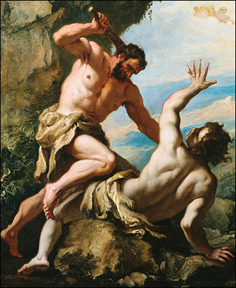“Monsters and the Moral Imagination” by Stephen
T. Asma sums up a lot of our discussions in class. I feel like we have gotten
to the point where we have talked about so many aspects of monsters that we
have become familiar with the author’s main points.
Some examples:
“The
uses of monsters vary widely. In our liberal culture, we dramatize the rage of the
monstrous creature—and Frankenstein's is a good example—then scold ourselves
and our "intolerant society" for alienating the outcast in the first
place. The liberal lesson of monsters is one of tolerance: We must overcome our
innate scapegoating, our xenophobic tendencies.”
We have talked about this many times. We
create these monstrous creatures that serve as our fear for different and
unknown and to protect ourselves we condemn them to a life of alienation.
“Monsters
can stand as symbols of human vulnerability and crisis, and as such they play
imaginative foils for thinking about our own responses to menace.”
We discussed this back when we read “The
Monster Within: Post-9/11 narratives of threat and the U.S. shifting terrain of
terror.” They reflect what has happened in our lives and how that has changed
us. They represent our newfound fears after tragedy.
“In
a significant sense, monsters are a part of our attempt to envision the good
life or at least the secure life… In order to discover our values, we have to
face trials and tribulation, and monsters help us imaginatively rehearse.
Imagining how we will face an unstoppable, powerful, and inhuman threat is an
illuminating exercise in hypothetical reasoning and hypothetical feeling”
We want to survive and monster stories are
exaggerated circumstances of what can happen to us. But they can also prepare
us for realistic situations where we might actually have to fight those
monsters. This can also be traced back to our post 9/11 discussion or when we
read the X-Men comic. The monster represents those struggles and obstacles in
our lives that we need to face in order to survive and become better.
We have discussed so many of this points
so I wondered, why are we reading about this again? Haven’t we heard all of
this before? Maybe we have, but it’s a good thing that we are reading this. It
serves much more than just a refresher; it can help you change your mind a
little bit or it can confuse you.
Asma’s words confused my perspective of a
monster. Throughout this whole course I have placed characters into two
different categories: monsters and wrongfully accused monsters. Monsters are usually
our enemies who are trying to harm us. Their actions are devastating and
unforgivable. However, there are other
characters categorized as monsters who we sympathize with because they have no
other options but to act like monsters. The actions may be monstrous, but they
are not monsters. The definition changes for each situation/character. Now I am
not so sure this is valid. I realized that I was basing the definition on the
connection with or feelings towards a specific character. In other words, if
the character’s actions were justified by a troubled past or unfair
circumstances, the character was not a monster in my eyes and their actions
were forgivable.
After reading “Monsters and the Moral
Imagination,” I realized that a character’s actions make him/her a monster,
regardless of the reasoning behind it. Asma states “if you can gather a man's
family together at gunpoint and force them to watch as you cut off his head,
then you are a monster. You don't just seem like one; you are one.” This is
true, there is nothing that can justify this action. We can make up a story
that the man could have done horrible things to the person who murdered him, and
this man was just getting his revenge. He is still a monster and his actions
are devastating and unforgivable. This is an extreme case, but it can be true
for every case. However, I think it is important to state that some monsters
are worse than others and that some monsters can change their ways and become
better. Furthermore, it is okay to sympathize with monsters, it is okay to feel
bad about what caused them to become this way. It is even okay to understand
why they are doing what they are doing, but we must realize that they are
monsters. Our connections with and feelings towards them does not change
anything. At least this is what I think now, maybe next week we’ll read
something else and I’ll change my mind again!


